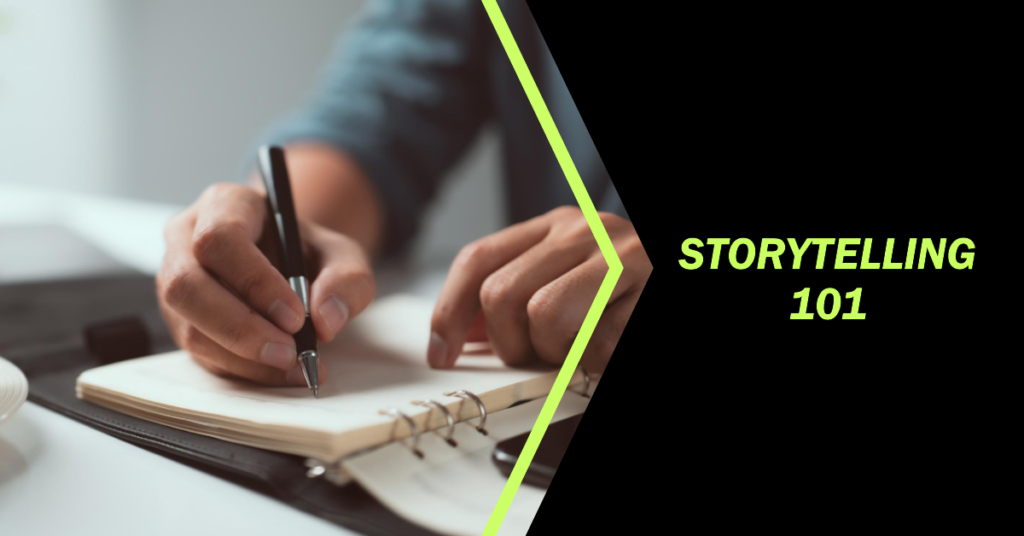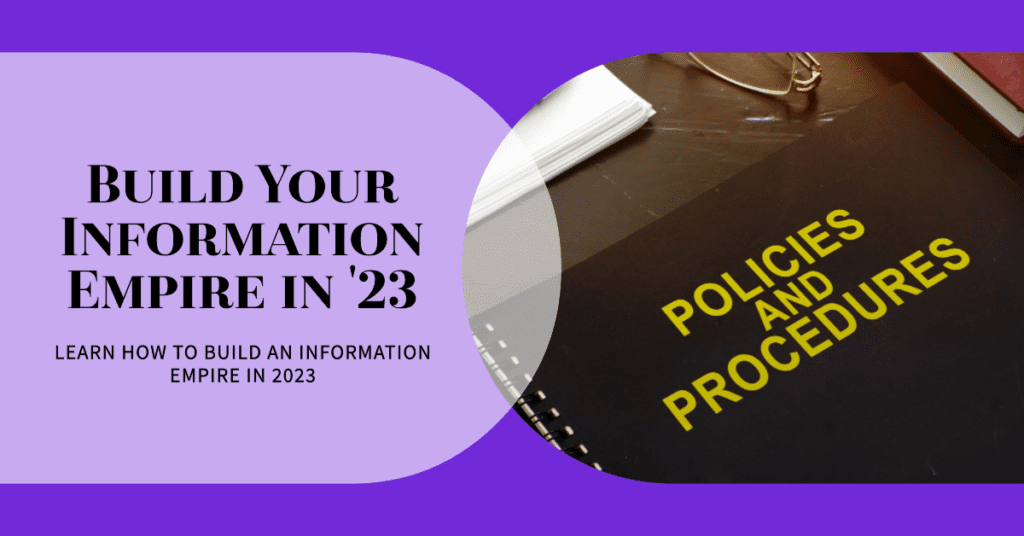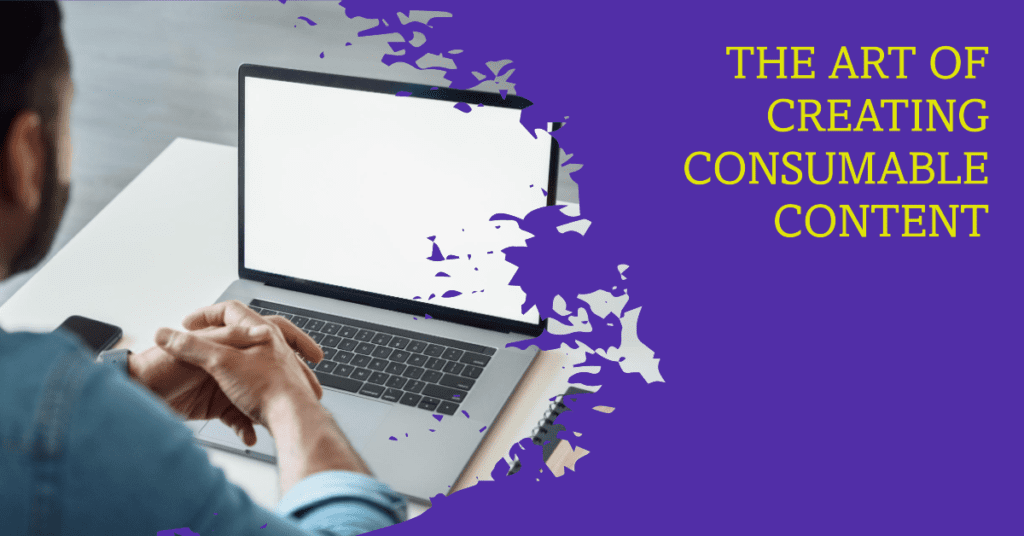How your story content becomes your content contribution to your world.
The part of you meant to connect. That part you’re creating to share with the rest of your world. Your content (your story) is your contribution to the world.
It’s the thing you contribute to your world. It’s what you do. It’s what you give back. It’s how you affect other people. It’s how you leave a legacy that goes beyond you. I’m the latter half of my life so I think about that legacy a bunch.
How will I leave that legacy behind?
Will it make sense to others?
Will it affect their lives for good?
What will they say about me when I leave?
It all starts with your story. It’s about you. You don’t live out somebody’s story. You live out yours.
When training salespeople I often heard, “I don’t have a story.”
I was presenting a training seminar about 10 years ago. There was a young man in the seminar. I mean he was really in the seminar. Like hanging on every word in the seminar. As I’m leaving for lunch, he said, “Hey, can I ask you a question? Are you like a hundred years old?”
I thought I would die. I laughed so hard I almost ran into the door.
“Why do you ask?”
“Because you have a personal story that relates to everything that you teach. How do you get stories like that?”
“Simple.” I whipped back at him.
“First, you pay attention! If you do that, the answer to your questions will appear.”
The very first thing you have to do is pay attention. My dad always told me, “don’t be a goose.”
You must pay attention to what’s going on in your world. If you pay attention to what’s going, it’s amazing how many stories you’ll pick up. It begins with you.
Now you’re listening to this and you’re wondering “Wait a minute. What does a goose have to do with anything remotely related to storytelling?”
Why is that?
Simple.
Our brains are wired for stories. You’re expecting, “Don’t be a goose” to be followed by a story. You’re expecting that to lead into an amazing story with some glorious ending.
Start where you are. Every time I ever heard, “Don’t be a goose.” Somewhere in the yard, there would be a goose.
You begin where you are.
Where do you live? What are your surroundings? What’s your environment? What emotions are you experiencing? What’s your relationship with business? What’s your relationship with people and customers?
It’s about you, it starts with you.
Your story always begins with you. Every business has a story. People get into business because that’s their story. Or they started out because they saw a need. It’s their story!
They created this business…
It’s a story. It’s the personal story of the individual that became a business.
Every story is about a person. It’s always about a person. It may be about a business, but the origin of the business is always a personal story.
Great content, engaging content always begins with the story. Then it expands to the next step…
How the story affects others.
Maybe my business is an HVAC company. Why did I get in that business? What difference do I want to make?
I remember visiting with a man about his HVAC business.
He said, “In the summer months, and in the winter months, we give top priority to senior citizens. If their AC goes down at three o’clock in the morning, we are there at 4:15! We give them top priority!”
That’s an important story. That’s a valuable story. It’s something that makes a tremendous difference in the community. And he followed that with an amazing story why.
Every business has a story. Every individual has a story and how that story affects other people.
My nephew is maybe the best HVAC tech in the country. He’ll tell you, “I’m never the first call. I’m too expensive. But I’m always the last call.”
It’s his story. He’s lived it. It’s powerful!
Great engaging content comes from living your life. It has to be personal. It might be about a business, but that business is always about people. Then, how the story affects other people.
Your story and your purpose are inseparably joined.
What’s the central part of that story?
What is it about you that makes a difference?
“What’s Your Story…”
My purpose is to make complicated things simple. I’ve always had a passion for making complicated things simple.
I have a compelling reason for making complicated things simple…
A confused mind is paralyzed
As early as grade school, my friends would come to me and ask, “what did the teacher just say?” My fellow students didn’t know what to do without clarity of instruction. Paralyzed from the confusing lack of simple instruction, they could not proceed. You’re that way too, when you’re confused.
My task was making complex things simple. It’s always been my purpose. I’ve always made complex things simple. The environment changes, but the purpose remains.
Your Story Touches Others
You’ll discover as you live out your story, how many opportunities you have to touch others with your purpose.
I have stories about making complex things simple in more ways than I ever dreamed possible. I told that young man at the beginning of this article, “If you live long enough. If you pay attention to your world. You’ll have stories, stories of your own.”
About six weeks later, I was at a business appointment. When I returned to my car, I saw my phone had a bunch of messages. All from Adam.
I called him right back. He says, “man, you won’t believe this. I have a story.”
Did he ever!
Of course, he did. He was paying attention. He paid attention so he could contribute to his world.
The Four Reasons for Your Story
#1 To inspire others
One of the most powerful reasons to tell a story is to inspire. We should find ways daily to inspire others. Lord knows we have enough negativity in the world. Let’s make sure our stories are inspiring.
Will this lift others up? Is this going to make someone’s day better? Will it matter in the issues they will face today?
The better I understand my audience, the better I understand my story, the better that we can relate. From the relating comes powerful inspiration.
#2 To make connections
Stories are our connecting point. It’s where we share a commonality.
Be careful though. I have a friend who, whenever you talk about something. He says, “that’s just like”. The next thing you know, it’s not like anything that you or anyone else in the room was talking about. It’s just his excuse for jumping into a conversation. That’s not connecting, it’s being an ass.
The purpose of a story is to connect. Our brains are wired for stories. They allow us to connect. We connect deeper at the story level.
We jump into a story and we can see ourselves in that picture.
Real names, real places, real dates, real details, and real events all lend credibility to the story. Even some degree of humor makes a story more believable.
If I tell a story, about being in the Regions Bank on the corner of Five Points. Immediately people can see that in their mind, they connect. The purpose of the story is to connect. They can see themselves standing in line.
#3 To engage
Sometimes the purpose of my story is to engage. I want to engage with the other person. I want to pick them up where they are. Carry them to a place they want to be.
A fundamental law of the learner… “you take people from where they are to where you want them to go.” I would add to that where they want to go.
Engagement implies they will enjoy the journey. We’ve all heard that “storyteller” who created the most painful journey. After a few minutes (already exceeded the limit of a good story) you wonder why you’re on their story bus and how quickly can you get off.
So you inspire, connect, engage then you…
#4 To persuade
The fourth reason for telling a story is to persuade.
It can be something as simple as I saw a movie and you really need to see it. Or I had this cheesecake, and it was amazing. Or I went to this coffee shop and you would not believe the experience in that place.
The story’s purpose is to persuade. You want people to love that cheesecake, or you want people to hang out at that coffee shop, or you want your friend to enjoy that movie.
All of those things are your story. Your story has a purpose.
Write Your Life
I had the privilege of working with Maya Calica Collins when she was writing her book Write Your Life. The purpose is to write your childhood memories, but the daily trigger exercises are invaluable.



